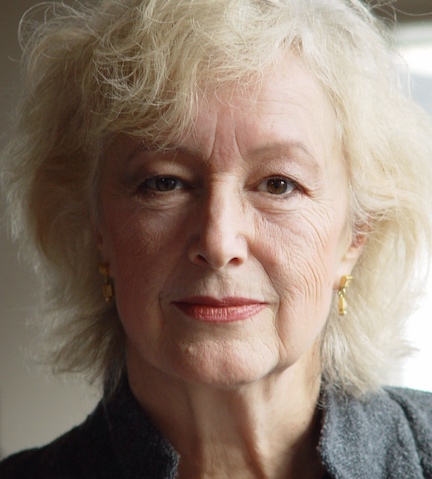On this date in 1945, author Lesley Adele Hazleton was born in Reading, England. She was raised by nominally Orthodox Jewish parents, Sybil (Silverman) and Jessel Hazleton, a general practitioner, and was the only Jew attending a Catholic convent school. She developed into “an agnostic with a deep sense of mystery but no affinity for organized religion.” (Publishers Weekly, May 21, 2007)
She earned a B.A. in psychology from the University of Manchester and a master’s in psychology from the Hebrew University of Jerusalem, where she taught in an experimental high school before turning to journalism. She reported from Jerusalem for several major publications before moving to New York in 1979.
In her first book, “Israeli Women: The Reality Behind the Myths,” published in 1977, she announced that she had no plans to marry and did not want children. In addition to her other journalistic efforts, she started driving race cars and wrote car columns for Lear’s and the Detroit Free Press.
She published “Confessions of a Fast Woman” about her automobile adventures in 1992 and started a blog about faith and religion titled Accidental Theologist. That was the year she moved into a floating home in Puget Sound near Seattle. “Mary: A Flesh-and-Blood Biography of the Virgin Mother” appeared in 2004, followed by “Jezebel: The Untold Story of the Bible’s Harlot Queen” in 2007. Her 2009 book “After the Prophet” explored the roots of Shia and Sunni Islam.
“The First Muslim: The Story of Muhammad” was released in 2013. “Agnostic: A Spirited Manifesto” was her last book, published in 2016.
In “Agnostic,” Hazleton wrote that “I resist thinking of myself as spiritual.” Expounding on that in a 2016 interview on FFRF’s Freethought Radio, she said, “There are many things that I believe, obviously, but there is nothing that I believe in.” She added that she would like readers of the book to appreciate “the need for mystery, the delight of mystery, of not knowing, … to really appreciate doubt. People are terrified of doubt, and of course that is totally church imposed.”
“Consider: A stranger calls you on the phone, says she’s conducting a survey, and asks if you believe in God,” Hazleton wrote. “You can answer only yes or no, since don’t knows don’t count. And consider too that if you simply hang up, as you’re likely to do if you consider this an absurdly simplistic question, you don’t count either.”
The above was Hazleton’s explanation why polls usually indicate that Americans are such devout believers in God; if you force someone to make a binary choice, all nuance and shading simply disappear, wrote reviewer Paul Constant. (Seattle Weekly, April 6, 2016)
“I stand tall in my agnosticism,” Hazleton wrote, “because the essence of it is not merely not-knowing, but something far more challenging and infinitely more intriguing: the magnificent oxymoron inherent in the concept of unknowability.” (New York Times, May 7, 2024)
Diagnosed with terminal kidney cancer, she died at home at age 78 with the aid of hospice volunteers using Washington’s Death With Dignity Act. She announced her death in an email she scheduled to be sent to friends after she died. (D. 2024)

